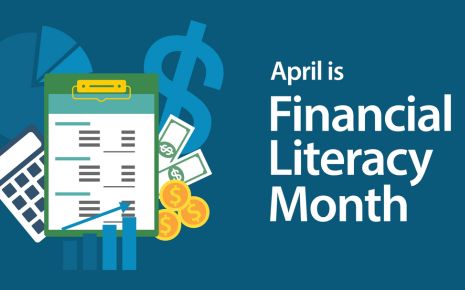
More than a Flip of a Coin: Financial Literacy and Economic Development
April 3, 2025
Fiscal responsibility and competence are critical skills for managing financial health in personal and business decision-making, as choices today lead to long-term security and prosperity. That concept is the underlying theme of National Financial Literacy Month, observed every year in April. For the Greater Gallup Economic Development Corporation (EDC), its significance extends beyond personal finance as a key driver of economic development, growth and stability for entrepreneurs, organizations and communities.
Financial literacy in 2025 is not optional but an essential requirement in today’s increasingly interconnected economies. A population equipped with financial knowledge is better positioned to make informed decisions that positively impact their economic well-being, leading to higher savings rates, better credit management, and greater financial security.
Quickbooks reports about half of small business owners have an adequate grasp of financial management before starting a business. Employers rely on a financially balanced workforce; SHRM has indicated that 83% percent of HR professionals reported overall employee performance was impacted in some way by personal financial challenges.
On a broader scale, a financially literate workforce can also contribute to better social outcomes, such as reducing income inequality and supporting long-term wealth building. Financial education can empower individuals to escape poverty, build assets, and break cycles of financial instability. It helps create a more equitable society where people from diverse backgrounds can participate in economic growth and prosperity. Some valuable resources include:
- Intuit for Education is a free program that applies real-world tools to build financial confidence and literacy.
- Money Smart New Mexico exists to “guide the people of New Mexico on the path to economic independence through expansion of their knowledge of financial concepts and access to financial resources.”
- United Way Worldwide is a good resource for financial security learning, including money management, financial coaching and more.
- Wells Fargo Financial Education is a collection of tools for various user topics.
Entrepreneurs and small businesses
Financial literacy plays a crucial role in fostering small business development. Entrepreneurs with sound financial knowledge can better manage cash flow, understand market trends, and navigate financial risks, all of which contribute to the success of their ventures. Small and medium-sized businesses are the backbone of most economies and thrive in environments where business owners are financially literate, leading to job creation, higher productivity, and stronger local economies.
Financial know-how and the economy
At the macroeconomic level, improved financial literacy directly correlates with economic development. When a community’s residents and participants possess the financial knowledge to make sound personal and professional decisions, they contribute to the overall stability and growth of the economy. A financially literate population is more likely to invest in education, housing, and businesses, fueling demand and innovation. Individuals with a strong understanding of credit are less likely to default on loans, reducing the risk to financial institutions and maintaining the banking ecosystem’s stability, which, in turn, promotes economic development by encouraging the free flow of capital and investments.
Financial literacy is inherently built into Greater Gallup EDC’s mission to drive economic growth through building on local assets and strategic partnering. Contact us today to see how we can help you build that financial base to a prosperous future!

